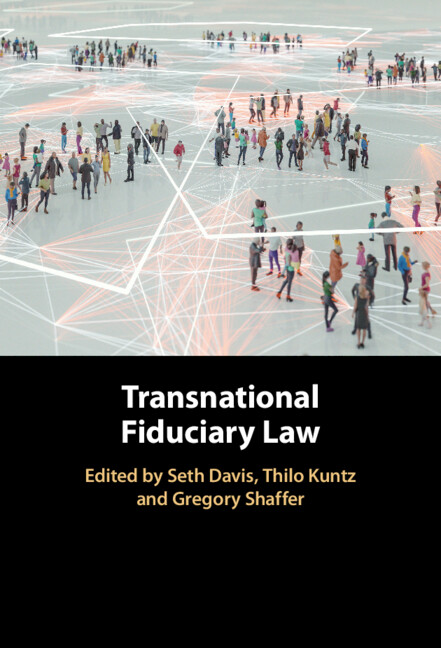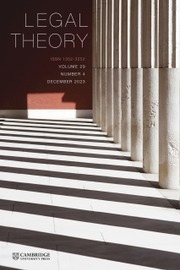Fiduciary Government
The idea that the state is a fiduciary to its citizens has a long pedigree - ultimately reaching back to the ancient Greeks, and including Hobbes and Locke among its proponents. Public fiduciary theory is now experiencing a resurgence, with applications that range from international law, to insider trading by members of Congress, to election law and gerrymandering. This book is the first of its kind: a collection of chapters by leading writers on public fiduciary subject areas. The authors develop new accounts of how fiduciary principles apply to representation; to officials and judges; to problems of legitimacy and political obligation; to positive rights; to the state itself; and to the history of ideas. The resulting volume should be of great interest to political theorists and public law scholars, to private fiduciary law scholars, and to students seeking an introduction to this new and increasingly relevant area of study.
- Proposes legal solutions, based on fiduciary principles, to the problem of corruption among public officials
- Analyzes an alternative account of the authority of the state that is not premised on voluntarist or consensual assumptions about the origins of state authority
- Provides an alternative way of understanding the authority and obligations of public officials that is both coherent and continuous with the authority and obligations of private fiduciaries
Reviews & endorsements
‘This excellent and novel volume seeks to reinstate the fiduciary principle to its historic place in regulating a government's relationship with its people. After two centuries of neglect, a growing number of mainly North American scholars have embarked enthusiastically on this task. They have recognized, correctly, that resort to this principle, with necessary modernization, is capable ultimately of providing greater clarity, coherence and guidance in legal and political thought than that which prevails today.' The Honourable Justice Paul Finn, Federal Court of Australia
‘The fiduciary theory of government holds that governments and government officials only hold power in trust for the benefit of others; therefore they have special duties of fairness and good faith. Debating both the attractions and the problems of the fiduciary conception, these essays are a valuable addition to a growing literature.' Jack M. Balkin, Yale Law School
Product details
November 2018Hardback
9781107194243
350 pages
236 × 160 × 25 mm
0.62kg
Available
Table of Contents
- Introduction. Fiduciary government: provenance, promise, and pitfalls Evan J. Criddle, Evan Fox-Decent, Andrew S. Gold, Sung Hui Kim and Paul B. Miller
- Part I. Modes of Governance:
- 1. Fiduciary representation Paul B. Miller
- 2. Two problems of fiduciary government D. Theodore Rave
- 3. Guardians of legal order: the dual commissions of public fiduciaries Evan J. Criddle and Evan Fox-Decent
- 4. Fiduciary theory: the missing piece for positive rights Laura S. Underkuffler
- Part II. Historical Approaches:
- 5. 'The state is a minor': fiduciary concepts of government in the Roman law of guardianship Daniel Lee
- 6. Fiduciary government and government officers' incentives Nicholas R. Parrillo
- Part III. The Problem of Legitimacy:
- 7. Fiduciary political theory and legitimacy Stephen R. Galoob and Ethan J. Leib
- 8. The state as a wrongful fiduciary Andrew S. Gold
- Part IV. Corruption and Breach of Trust:
- 9. The Supreme Court's fiduciary duty to forgo gifts Sung Hui Kim
- 10. Congressional officials and the fiduciary duty of loyalty: lessons from corporate law Donna M. Nagy
- 11. The American law of local officials as fiduciaries: lessons on fiduciary government's potential and limits Nadav Shoked
- Part V. Skeptical Challenges:
- 12. Pluralism and the public trust Seth Davis
- 13. The public trust Timothy Endicott.













